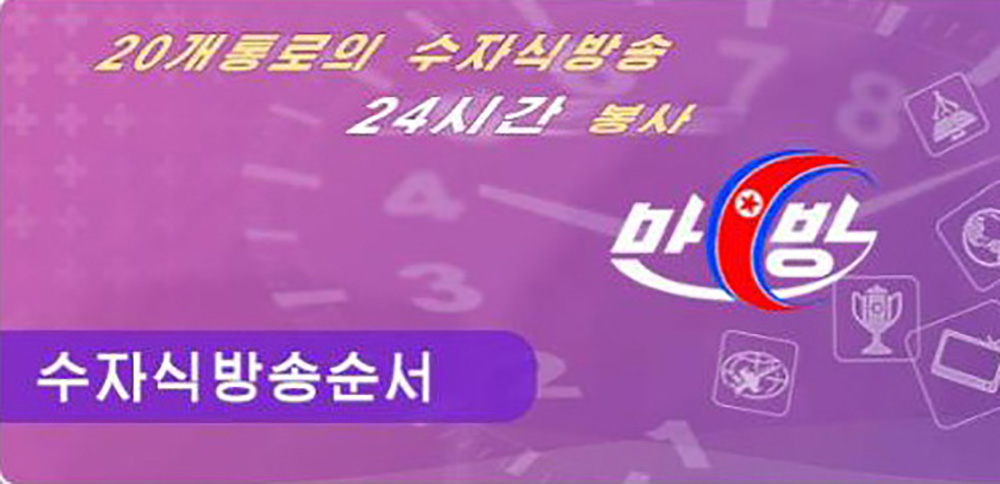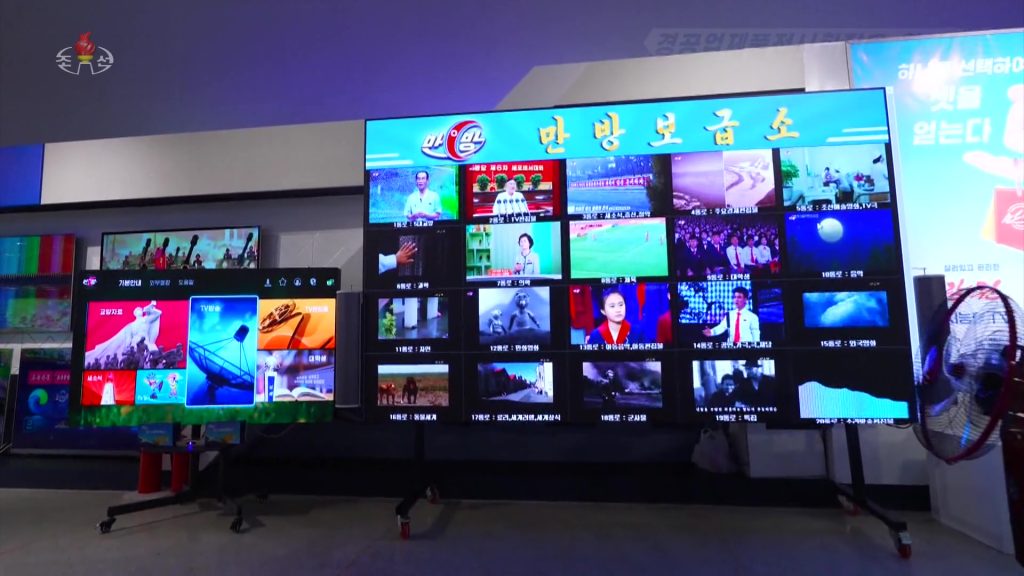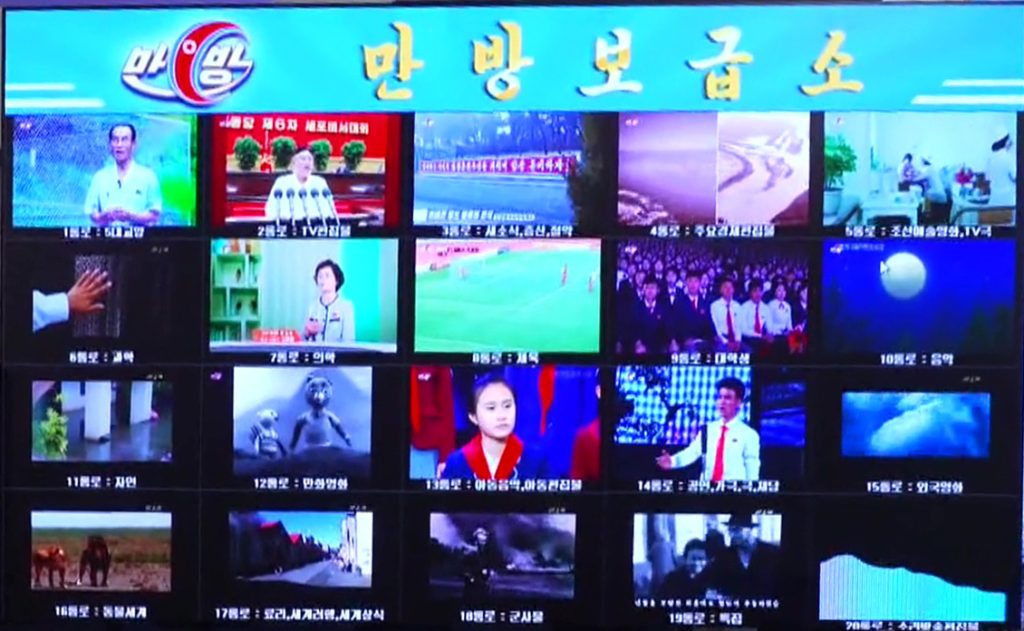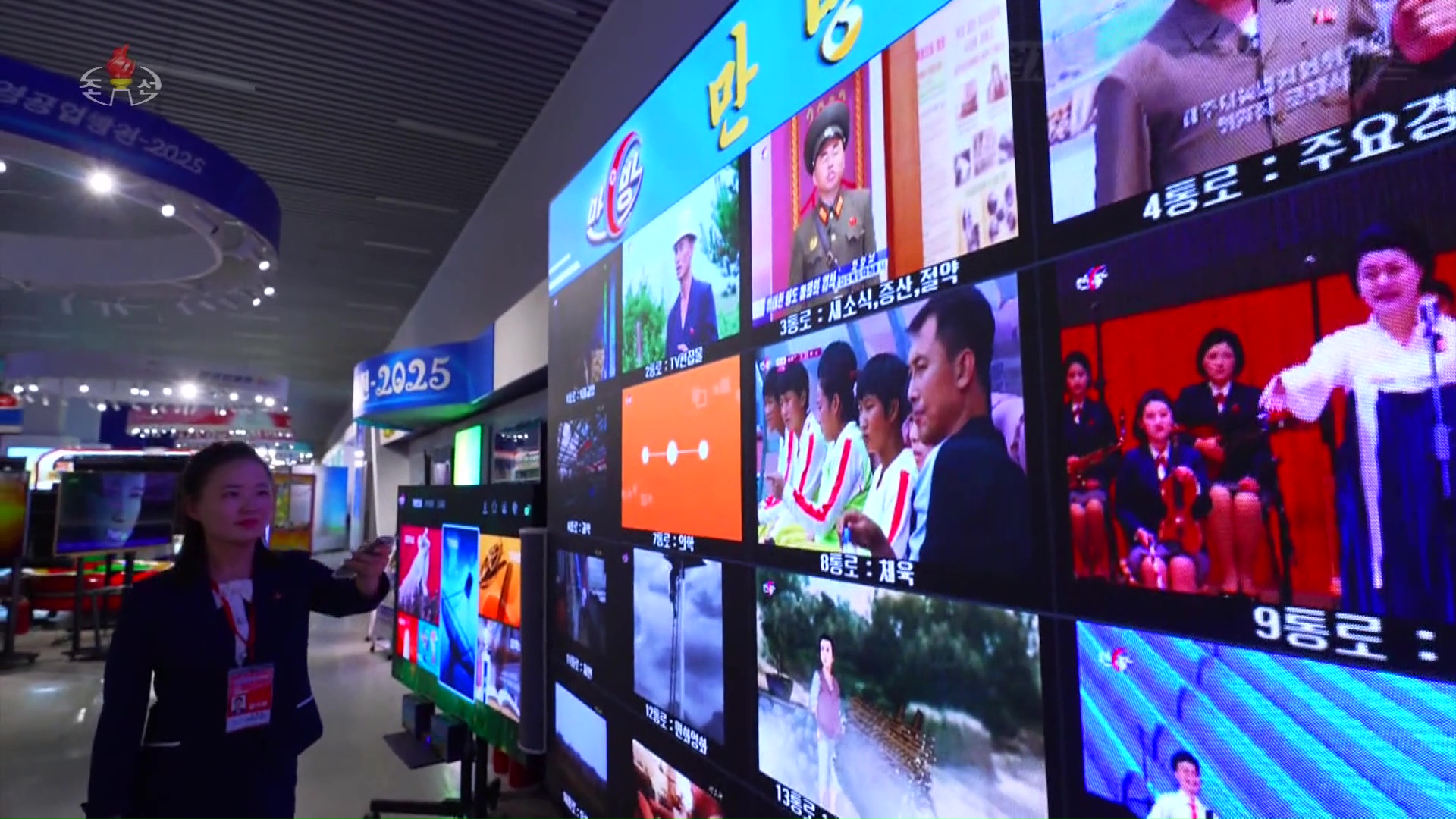North Korea’s Manbang Supply Center (만방보급소) appears to have launched a multi-channel Internet Protocol Television (IPTV) streaming service, providing 20 channels of linear television across the country’s internal data networks.
It is the first cable TV-like service in the country and represents a significant expansion in entertainment options for subscribing households. Alongside electronic payment services, it is a further example of state-owned IT enterprises developing and operating new services.
Background
Manbang began its video streaming service via set-top box in 2016, when North Korea began expanding availability of television across the country. Until then, residents in Pyongyang had access to three analog TV channels, but the rest of the country only received Korean Central Television.
Beginning in 2016, the country launched a four-channel digital broadcast television service. Manbang provided subscription access to those four channels alongside the ability to watch programs on demand.
The broadcast network expanded to the entire country over the subsequent years, presumably reducing the attraction of Manbang’s subscription service to households. The 20-channel IPTV service provides a new reason for homes to subscribe.
Limited Entertainment
While the four channels North Korean homes now receive is above what was available a decade ago, evening entertainment options are still limited.
Korean Central Television signs on each day at 9am and broadcasts until around 10:30pm. On weekday evenings, only one of the other channels, Ryongnamsan TV, is on air. On weekends, the other two channels—Mansudae TV and Sports TV—are on air in the evening, but Ryongnamsan TV is not.
So, despite there being four channels, the most broadcast TV available to households at any given time is three channels on weekend evenings.
The Manbang service is therefore a huge expansion in entertainment options for homes that can afford it. The price of the service is unknown.
The novelty of Manbang is not just in the number of channels, but also the broadcasting hours.
The latest edition of the Manbang app on North Korean smartphones advertises the service at the bottom of the app’s main screen and says they are available 24 hours a day. Except during a handful of exceptional weather events, Korean Central Television has never been on the air overnight.

The identity of the channels was unclear until recently. Images carried by North Korean state media from the Development of Light Industry 2025 exhibition (경공업발전-2025) in Pyongyang in late October show what appears to be the 20-channel service.

Each of the 20 channels is dedicated to a specific genre. They are:
- 1: Five Major Educations
- 2: TV Programs
- 3: News, Increased Production, Conservation
- 4: Main Economic Programs
- 5: Korean Films and TV Dramas
- 6: Science
- 7: Medicine
- 8: Sports
- 9: University Students
- 10: Music
- 11: Nature
- 12: Cartoons
- 13: Children’s Music and Programs
- 14: Performances, Operas, Plays, Witty Talk
- 15: Foreign Films
- 16: Animal Kingdom
- 17: Cooking, World Travel, World Common Sense
- 18: Military Programs
- 19: Featured Programs
- 20: Voice of Korea Programs

In various images from the exhibition and the National Exhibition of IT Successes that was taking place at the same time, some of the TV channels carry the Manbang logo in the top left corner, while others appear to have the logo of Mansudae TV in the top right corner.
Channel 20, labeled as Voice of Korea, appears to be an audio-only broadcast of the radio station of the same name. Voice of Korea is North Korea’s international shortwave radio station and broadcasts daily in English, French, German, Spanish, Russian, Arabic, Japanese and Chinese.
Manbang is available via smart TV, set-top box and smartphone, although it is unclear if the smartphone app supports streaming due to limitations of the cellular network and subscriber cost.


Leave a Reply
You must be logged in to post a comment.